Part 30: XXIX. Laurence V, Queen Ioulanda II 1868-1881 A.D.
Jerusalem's industry was continuing to improve and diversify. Unfortunately, if was becoming increasingly difficult to find decent factory workers, and some states were barely able to fully staff their industries.
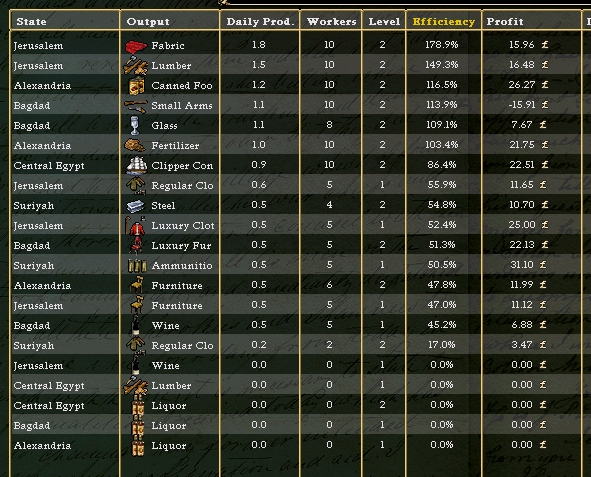
In the early 1860s, trade ships from the Federal Republic of Nicholia had forced the Japanese island empire to open up its ports to foreign trade. The Japanese quickly struck bargains and trade deals with Orleans, the Scots Union, and the F.R.N. and by 1868 had begun their own rapid process of industrialization and modernization.
The Scots were attempting to move into the Pacific in force, taking several islands off the coast of Japan to secure their trade routes as well as establishing colonies in the northeast of Antipodea. Hoping to maintain the Kingdom's strength in the south Pacific, King Laurence V sent several divisions to reinforce Antipodea.
In the summer of 1869, the Kingdom of Jerusalem attacked the Scots holdings in Antipodea, alleging a violation of the treaty that King Laurence had worked out with Leon to split the continent.
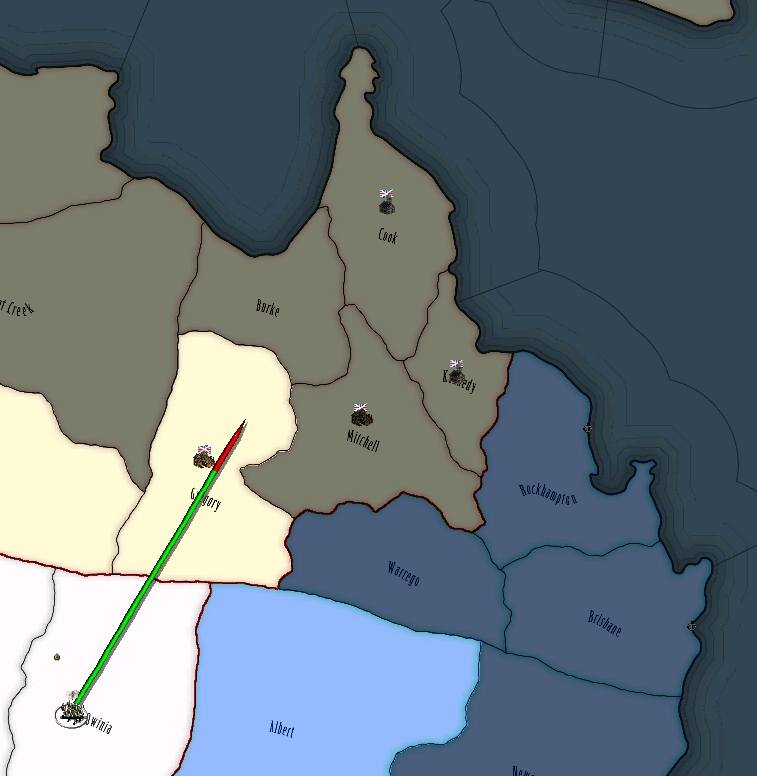
It only took a few months for the Kingdom's soldiers to secure Scottish Antipodea, but the Union was unwilling to settle for a peace treaty. In early 1869, King Laurence ordered his troops to attack the Scottish islands of Okinawa and Bonin. The Marianas were also seized with little resistance. But the stubborn Scottish King still refused to negotiate, so Jerusalem launched an assault on their only remaining Pacific possession: Victoria island, off the west coast of North Nicholia.

The island fell in March of 1871, just days before a Scottish relief fleet arrived and drove Jerusalem's small attack force into hiding in port. After a few months of blockading the island, the Scots Union reluctantly agreed to King Laurence's generous peace terms. Scotland's Antipodean holdings, as well as the Marianas were ceded to Jerusalem, and the Kingdom returned Victoria, Okinawa, and Bonin to the Union.
The victory was quickly celebrated in a resounding new opera that opened in Alexandria to rave reviews.
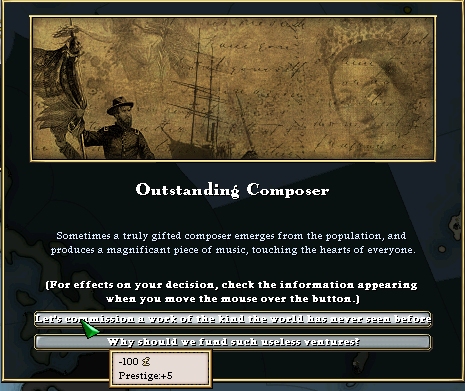
Oil was struck in Baku that fall. Although industry only had limited uses for it so far, many believed it would becoming increasingly important over time, and King Laurence was delighted that Jerusalem would have their own native stockpiles. There was some concern, however, over Baku's proximity to the Byzantine border and more troops were moved up to reinforce the area.
Workers in India attempted to strike to protest their working conditions, but the army was quickly called in to crush their temerity.

In December of 1871, a traitor was caught selling the new Saint Helena repeating rifles to Ethiopian tribesmen. The man was hung and Jerusalem decided to finally do something about the pitiful Ethiopian rump state on their borders. The war took only a few months and Ethiopia was quickly annexed.

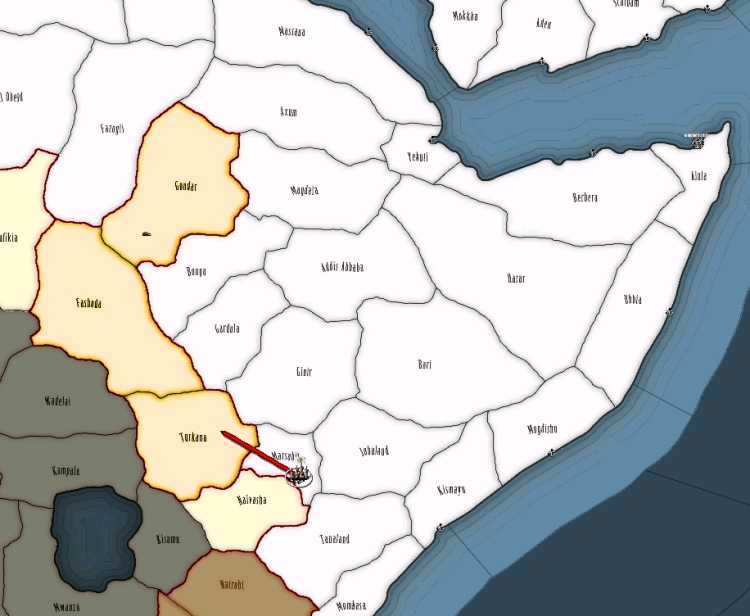
In 1873, the Federal Republic of Nicholia forced Orleans to cede their holdings in Florida, much to the humiliation of the King of Orleans. The great industrial power of Europe had been badly embarassed by the upstart Nicholians.
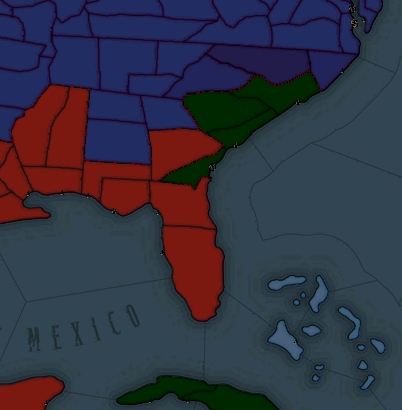
That same year new naval technology from the west reached Jerusalm. King Laurence V ordered the construction of a small fleet of these new ironclad warships to compliment the relatively puny navy of the Kingdom.
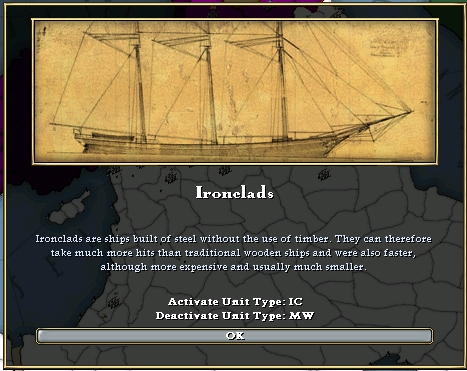
The Nicholians, meanwhile, continued to meddle in Europe. By 1874, the Confederate States had forced the Prussians to cede even more of their land, and the C.S.A. boasted loudly of bringing Nicholian style democracy to the Kingdoms of the old world.
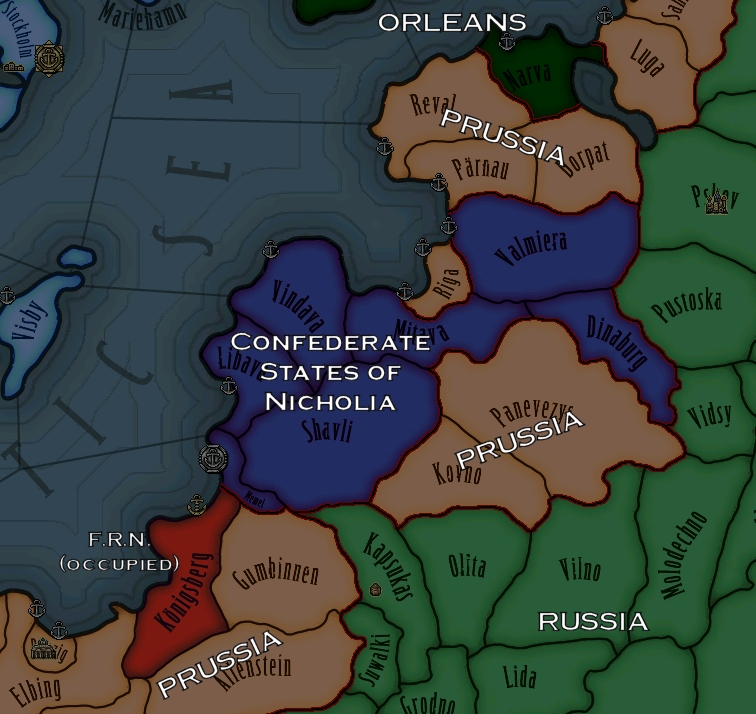
In 1876 the people of Germania attempted to throw off their Byzantine overlords. The war did not end terribly well for them. Although they gained their freedom, they were forced to cede land to the Bavarians, Scots and Byzantines.
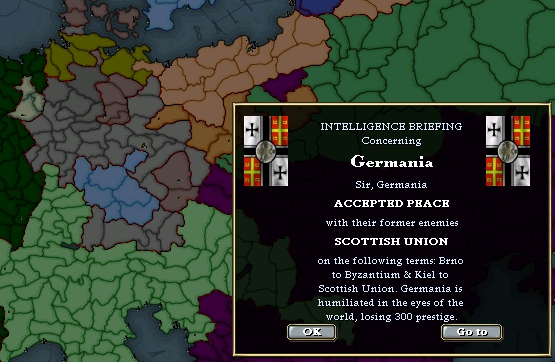
The Kingdom also began to face more and more choices as the populace of the nation absorbed liberal ideas from the west. The correct answer to most of these choices were quite obvious.
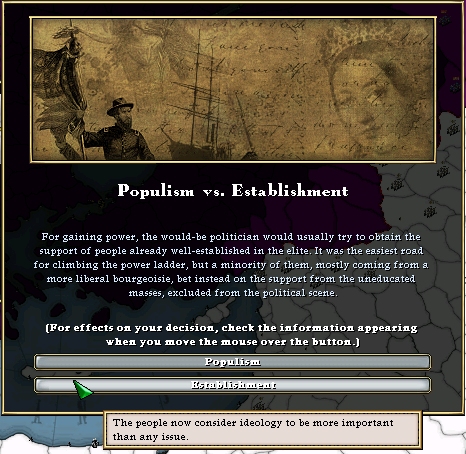
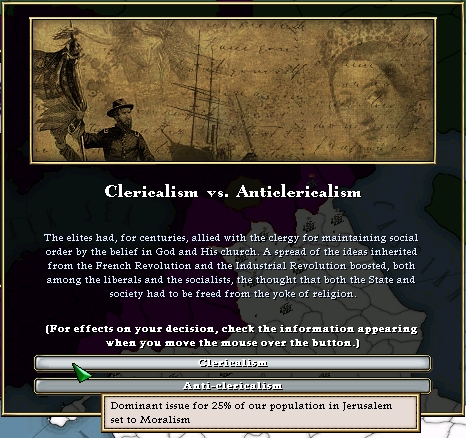
The biggest problem came with the place of the new rising class of rich capitalists. These business men demanded more political power and prestige in the Kingdom and their ambition was deeply resented by the nobility. By now King Laurence had grown older and more conservative, and in the end he listed to his closest advisors. A series of laws were passed to protect the traditional rights of the nobility and limit the advance of the new capitalists. This had an immediate negative effect on the Kingdom's economy, but the laws of God were not to be trifled with. After all, was it not easier for a camel to pass through the eye of a needle then for a rich man to enter Heaven?
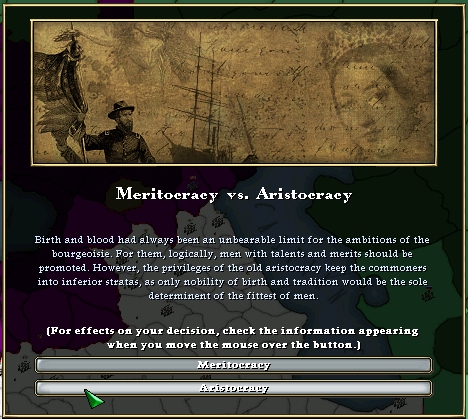
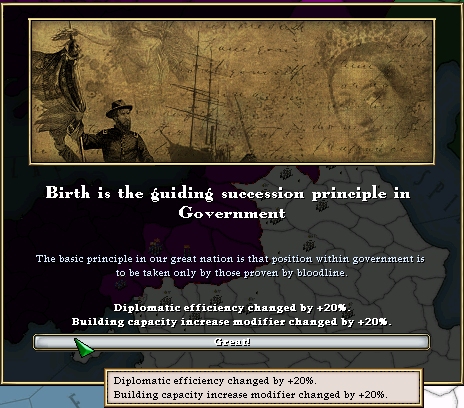
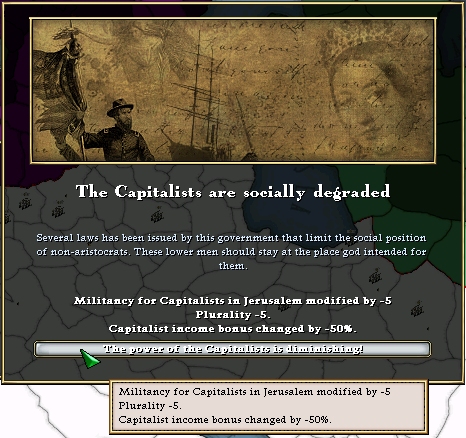
Old King Laurence in 1879:
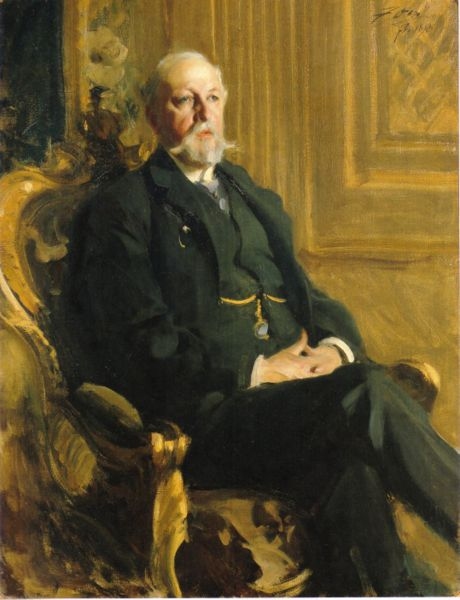
Although they had, in the past, been the enemies of the Confederates, and lost several wars to them, the Federal Republic was now rapidly becoming the dominant industrial power in Nicholia. Fueled by a belief in their 'Manifest Destiny' they had, in a few short years, stripped both the Scots and the Byzantines of their Nicholian possessions.
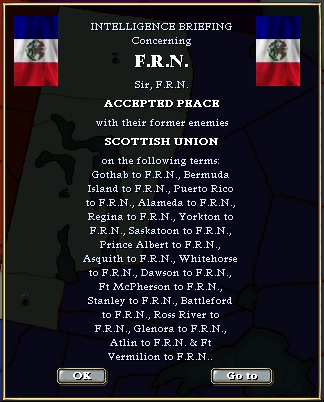
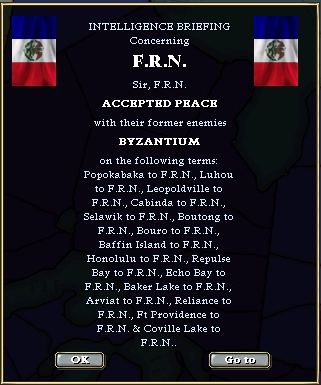
But their ambition was not without price. In 1880, itching for revenge, Orleans declared war on the Federal Republic of Nicholia. The Confederates came to the defense of their democratic brothers, dragging Prussia and Russia into the war on the side of Orleans. The Nicholians had been unprepared for the ferocity of the European onslaught. The Russian's quickly overran the Confederate outpost in Prussia, while Orleans made multiple landings all over the F.R.N.'s coast. Prussia attacked the frozen wastes the F.R.N. and Russia launched a naval assault just north of the Confederate capital.
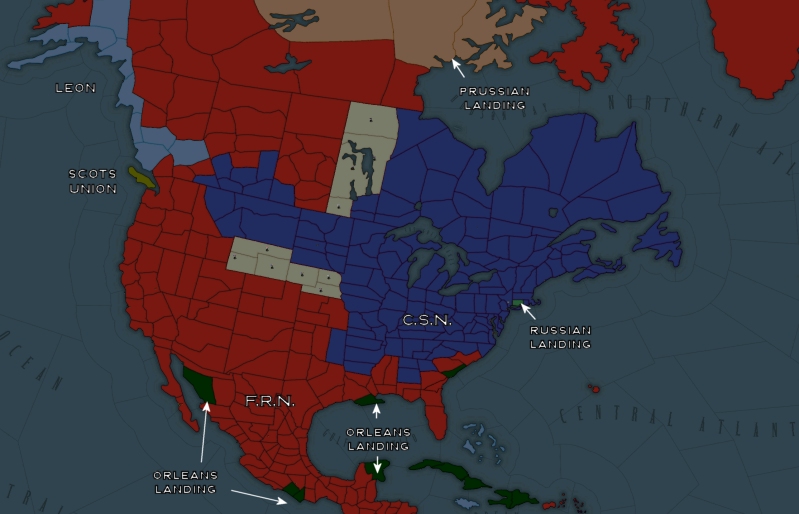
In South Nicholia things were no less peaceful. The Flemish Argentine had lost several wars and a large swath of their northern lands to the aggressions of the Amazonian Commonwealth. Now the Amazonians had allied with Hybrasil and attacked the Flemish once again. The C.S.A. had come to aid of the Flemish Argentine, but with their own land being invaded now it was unlikely they would send much more aid south.
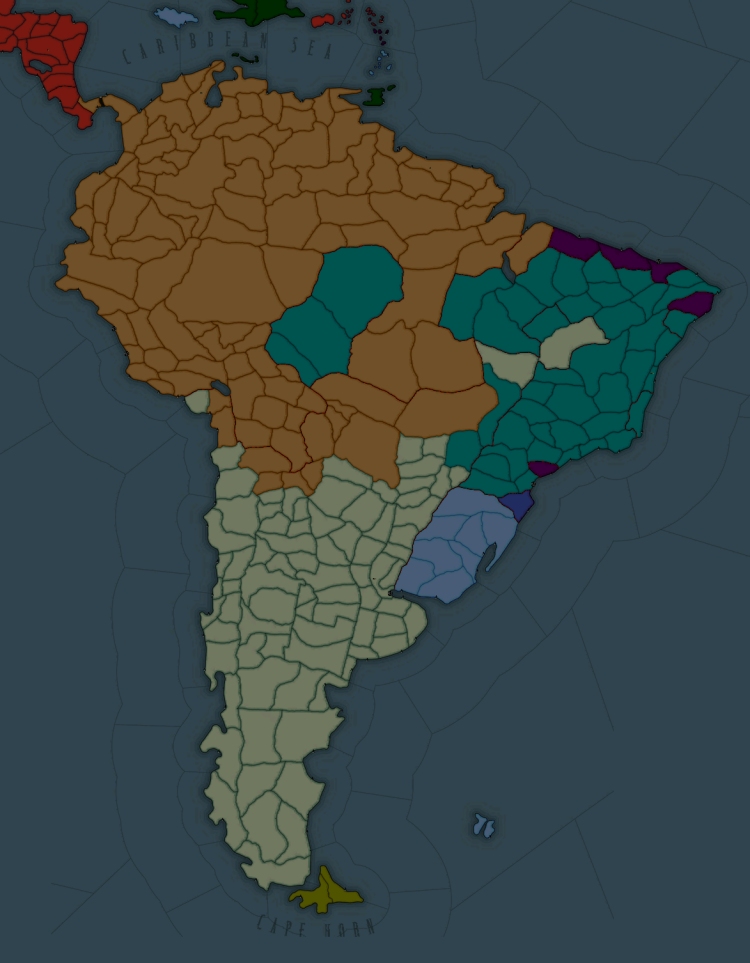
Europe:
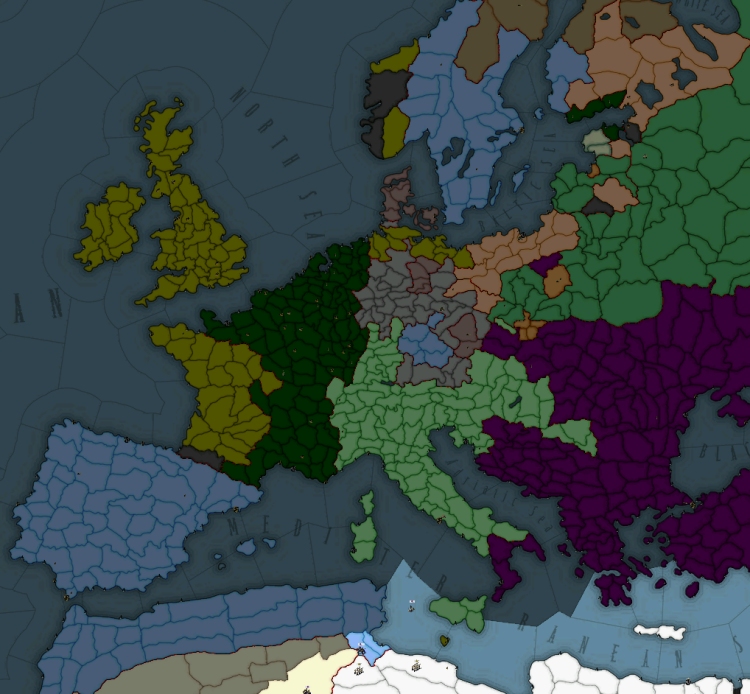
By 1881 it had become clear tensions with the Scots Union in the Pacific were on the rise. In violation of the peace of 1871 the Union had continued to colonize northern Antipodea and had expanded their other colonies in Indonesia. The aging King Laurence sent a firm letter of protest to Edinburgh. Perhaps the Union would be willing to sell the land?

Beginning negotiations was King Laurence's last major act. Late in the evening on the 17th of October 1881, the King died quietly in his sleep. He lacked a male heir, but his ambitious and aggressive daughter, Matilda, quickly seized the reigns in Jerusalem. She took the regnal name Ioulanda II.
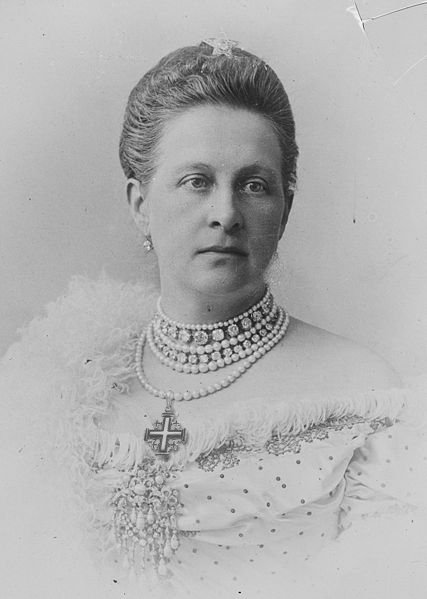
Queen Ioulanda II
Her first act as monarch was to recall the diplomats her father had sent to Edinburgh. Jerusalem did not negotiate with oath breakers. Ironclads steamed out of Alexandria and Basra, heading for the South Pacific. Clearly, the Scots needed another drubbing to show them their place.
Queen Ioulanda did not imagine the Union would put up much of a fight. After she had taken care of that little annoyance she had bigger wrongs to right. She asked her War Council to bring her maps of Afghanistan and the long frontier with Russia. Old scores would be settled, old humiliations would be avenged.
The days of the Crusader Queen had just begun…